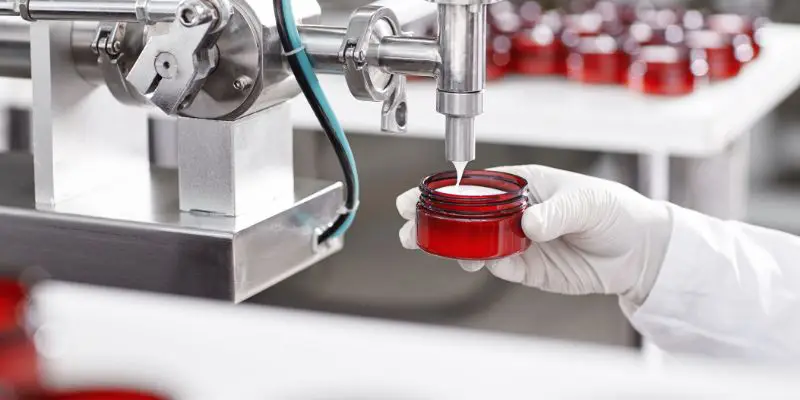Challenges in Developing New Cosmetic Products
The cosmetic industry is fast-paced and highly competitive, with consumers continuously seeking innovative and effective products. However, creating new cosmetic formulations presents various challenges that brands must navigate. Below are the key hurdles that cosmetic manufacturers face:
1. Strict Regulatory Compliance
- In India, cosmetic products are regulated under the Drugs and Cosmetics Act, of 1940, and the Bureau of Indian Standards (BIS). Compliance with these regulations ensures product safety and quality.
- Manufacturers must obtain proper licensing from the Central Drugs Standard Control Organisation (CDSCO) before a product can be marketed.
- Non-compliance can lead to product recalls, significant fines, and damage to a brand's reputation.
2. Ensuring Ingredient Safety
- Choosing safe yet effective ingredients is a major challenge. Ingredients should not cause skin irritation or allergic reactions.
- Brands must also assess the environmental impact of ingredients, especially with the growing demand for eco-friendly products.
- Testing for toxicity and stability is crucial to ensure that the ingredients maintain effectiveness throughout the product’s shelf life.
3. Stability and Shelf Life Testing
- Stability testing ensures that a product maintains its integrity over time under various conditions, such as temperature and humidity.
- A product that separates, discolours, or loses its fragrance can be unappealing to consumers.
- Conducting thorough stability tests can be time-consuming and costly but essential to maintain product quality.
4. Formulation Challenges
- Creating a product that delivers desired results while maintaining a pleasant texture, scent, and appearance is complex.
- Formulators must ensure that ingredients blend well without separating or reacting negatively.
- Adjusting pH levels, viscosity, and texture can take multiple iterations before achieving the perfect balance.
5. Evolving Consumer Preferences
- Consumers are increasingly seeking clean, organic, and cruelty-free cosmetics, which limits the range of ingredients that can be used.
- Keeping up with trends such as vegan formulas, paraben-free products, and sustainable packaging requires agility.
- Brands must constantly innovate to meet consumer demand, balancing efficacy with ethical considerations.
6. Cost of Research and Development (R&D)
- Developing a new product involves extensive research and testing, from initial concept to final formulation.
- The R&D process can be lengthy and expensive, often requiring specialised equipment and skilled personnel.
- Balancing the costs of innovation with competitive pricing is essential for success in the market.
7. Sourcing High-Quality Raw Materials
- Sourcing raw materials that meet quality standards can be a major challenge, especially for rare or natural ingredients.
- Fluctuations in the availability of raw materials can affect production timelines and product consistency.
- Building strong relationships with reliable suppliers is critical to maintaining product quality.
8. Packaging Development
- Packaging must be aesthetically pleasing and protect the product from contamination and degradation.
- Selecting packaging materials that are sustainable yet effective in preserving the product can be difficult.
- Packaging should align with the brand’s image while meeting safety regulations and providing a good user experience.
9. Product Testing and Consumer Trials
- Before launching a new product, it must undergo rigorous testing for safety, efficacy, and consumer acceptance.
- Conducting clinical trials, focus groups, and in-market testing helps ensure that a product meets consumer expectations.
- Gathering and analysing feedback can be time-consuming, but it is essential for refining the final product.
10. Intellectual Property Protection
- Protecting new formulations and unique product designs through patents can be complicated.
- Inadequate IP protection exposes innovative formulas to the risk of being replicated by competitors.
- Ensuring that patents are filed in key markets safeguards the brand’s competitive edge.
11. Sustainability Concerns
- The demand for sustainable and environmentally friendly products is growing, making it crucial to minimise environmental impact.
- Sourcing sustainable ingredients and using eco-friendly packaging can significantly increase production costs.
- Finding a balance between sustainability goals and maintaining profit margins is a common struggle for cosmetic manufacturers.
12. Managing Production Scale-Up
- Scaling up from small-batch production to mass manufacturing can present technical challenges.
- Maintaining consistency in product quality during scale-up is essential to avoid batch variations.
- Ensuring the manufacturing process is efficient and cost-effective while meeting quality standards is complex.
13. Marketing and Branding Challenges
- A well-developed product can fail due to ineffective marketing strategies to reach the right audience.
- Positioning a product in a crowded market requires a strong brand story and clear messaging.
- Investing in digital marketing, influencer partnerships, and advertising is essential to stand out in a saturated market.
14. Navigating Global Supply Chains
- Supply chain disruptions can cause production delays, especially when sourcing international ingredients.
- Shipping restrictions, customs regulations, and fluctuating currency exchange rates add further complications.
- Building a resilient supply chain with backup suppliers helps mitigate risks associated with global sourcing.
15. Labeling and Claims Compliance
- The information provided on product labels must be accurate and compliant with regulations.
- Misleading claims, such as “miracle results” or “clinically proven,” can result in legal challenges and loss of consumer trust.
- It is crucial to substantiate any claims made about a product’s benefits through rigorous testing and documentation.
Both private label cosmetic manufacturers and cosmetic contract manufacturers offer viable solutions depending on your brand’s vision and goals. Here’s how to decide which approach might work best for your business:
Conclusion
Developing new cosmetic products involves a complex process with numerous challenges, from ingredient selection to regulatory compliance and market acceptance. Despite these hurdles, the demand for innovative and high-quality cosmetics continues to grow. Brands that navigate these challenges effectively can create products that resonate with consumers and set trends in the industry.
Clarion Cosmetics is one of India’s prominent private-label cosmetic product manufacturers. With expertise in creating formulations, they meet market demands and regulatory standards.


